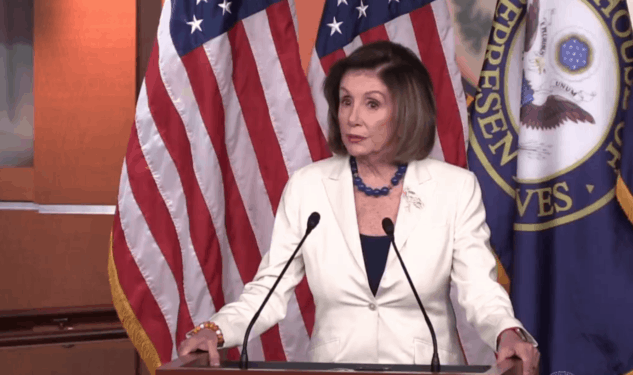
Speaker Nancy Pelosi says House will vote on Lower Drug Costs Now Act next week
Historic legislation to reduce prescription drug prices will come up for a vote in the U.S. House next week. Speaker Nancy Pelosi announced today that the Elijah E. Cummings Lower Drug Costs Now Act will reach the House floor as early as Tuesday. The bill, otherwise known as H.R. 3, would empower the Secretary of Health and Human Services to negotiate lower drug prices with Big Pharma on behalf of the millions of Americans in the Medicare program. The legislation represents the biggest change to Medicare since its inception in 1965.
“We are going to give Medicare the power to negotiate lower drug prices, and make those prices available to Americans with private insurance as well as Medicare beneficiaries. American seniors and families shouldn’t have to pay more for their medicines than what Big Pharma charges in other countries for the same drugs.” – Speaker Nancy Pelosi, 12/5/19
Through its “Don’t Cut Pills, Cut Profits” campaign, the National Committee has been fighting to lower drug prices, which have become a crushing financial burden for retirees living on fixed incomes – and working Americans at large. Soaring prescription prices contribute to Americans’ health insecurity, help drive the middle and working classes into medical bankruptcy, and compel them to forgo necessary medications.
An analysis by AARP last August revealed that nearly a third of pre-Medicare age adults are rationing pills, skipping doses, or simply not filling necessary prescriptions due to skyrocketing costs. Eight in ten Americans say drug prices are too high, with a majority blaming pharmaceutical company profits for unaffordable medications. A 2019 Kaiser Family Foundation study found that more than 80% of Americans (across party lines) favor aggressive government intervention to lower prices. Eight-six percent of those surveyed supported allowing Medicare to negotiate directly with drug makers – the very centerpiece of H.R. 3.
The bill includes:
-
A $2,000 cap on seniors’ Medicare out-of-pocket costs for prescription drug spending
-
A mechanism for the Medicare program to negotiate drug prices with manufacturers with a strong enforcement penalty to compel manufacturers to offer fair prices
-
An inflation cap on drug reimbursement to curb excessive and unwarranted drug price escalation
The House is expected to pass H.R. 3. On the Senate side, a bipartisan bill to reduce drug prices introduced by Senators Ron Wyden (D-OR) and Charles Grassley (R-IA) has been passed out of committee. The Grassley-Wyden bill – which is undergoing changes to win wider support in the Senate – contains provisions similar to those in H.R 3, but does not include Medicare price negotiation.
It’s uncertain whether Grassley-Wyden will reach the Senate floor. If the bill does pass by the Senate, a conference committee would have to reconcile the differences between Grassley-Wyden and the House legislation. One thing is certain: bipartisan majorities of Americans expect their elected leaders to take forceful action to relieve the pain of high drug prices, and will be rightfully angry if they don’t.
*******************************************************************
For more on this topic, watch “Behind the Headlines” on Facebook Live.


